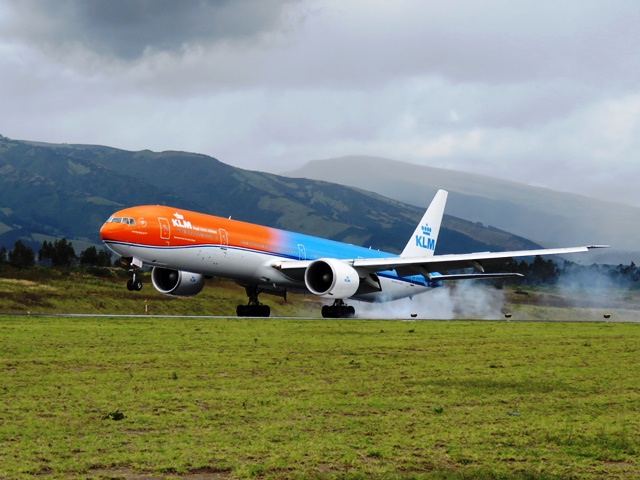KLM may not be a perfect airline, but it"™s surprisingly spunky considering it"™s owned by a giant French company that also controls Air France. The two airlines couldn"™t be more different.
To better understand the challenges facing airlines in an age of fluctuating oil prices, rapid growth, and changing passenger expectations, our Future of Passenger Experience series will allow leaders in the industry to explain their best practices and insights. Read the rest of the series here.
This is the latest interview in the series.
KLM CEO Pieter Elbers reached the top the hard way, climbing the corporate ladder for more than two decades, starting in 1992 supervising aircraft loading at the carrier"™s Amsterdam hub.
Since 2014, he has led one of Europe"™s quirkiest "” and most profitable"” airlines, managing 33,000 employees. In part because of its robust long-haul network and its trans-Atlantic partnership with Delta Air Lines, KLM made 681 million Euros (about $764.1 million) in operating profit last year, 300 million ($336.6 million) more than in the previous year.
But not all is perfect at KLM because the Dutch carrier is not an independent company. In 2004, it merged with Air France, and the combined company is called Air France-KLM. The full company is profitable, but KLM far outperformed its French cousin last year, with France"™s flag carrier earning about 372 million Euros ($417.4 million). This happened even though Air France has about twice as many aircraft as KLM.
KLM has fewer labor troubles than its French partner, and it has a robust Dutch low cost carrier called Transavia that helps it fend off challenges in Amsterdam from discount airlines. KLM is also a spunkier brand than its French counterpart, and it"™s more willing to take chances than Air France on technology and innovation. (Air France-KLM CEO Jean-Marc Janaillac recently told Reuters that millennials view Air France as "too stiff.")
We spoke with KLM"™s Elbers last week at the IATA Annual General Meeting in Cancun, a two-day global conference for airline executives. We asked him how his airline retains its independence, despite being part of a much larger company. We also asked about KLM"™s long-term focus on innovation.
Pieter Elbers: I think it"™s deeply rooted in our company. Our company was founded in 1919. It"™s 98 years old. And we"™re coming from a country with an airport below sea level, with a population in relative terms which is very small. And we"™re probably one of the few, if not the only airline, which right from the start didn"™t have any domestic flights. Because [The Netherlands] is just so small. And in order to sort of overcome this disadvantage, we had to be more innovative.
I think we have cherished innovation through the company all these years. We were the first [airline] really making use of the sixth freedom traffic. And we were the first ones, with our partnership with Northwest [Airlines], to do a transatlantic joint venture [in 1997]. Then, we were the first [airline] in the [current wave of] European consolidation with Air France back in 2004. And then the use of social media. From 2009, we took it up.
It"™s deeply rooted in the company, and my view is also that this really differentiates us from the competition…



